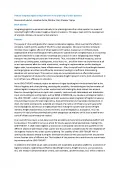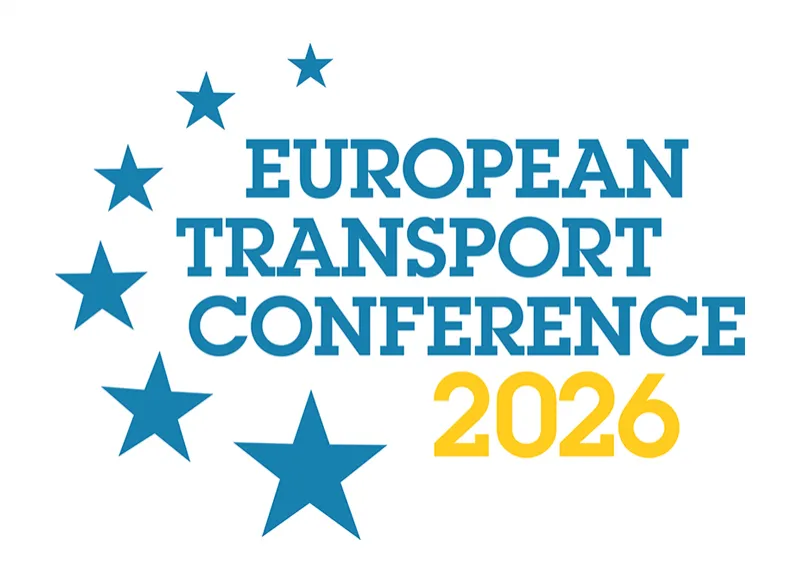-
Past ETC Papers

Browse, search and view papers from the past AET Conferences.
-
Members' Area

AET promotes networking and exchange of ideas, information and opportunities amongst members.
Conference Papers 2023
Milan, Italy
ETC Conference Papers 2023
How to integrate logistics requirements in the planning of urban quarters
Seminar
Day 1 (6 Sep 2023), Session 2, Urban Freight Planning, 14:00 - 16:00
Status
Accepted, documents submitted
Submitted by / Abstract owner
Alexandra Anderluh
Authors
Alexandra Anderluh, Jonathan Fetka, Günther Illek, Melanie Troppe
Short abstract
Integrating logistics requirements already in the planning phase of an urban quarter is a means of reducing freight traffic-related negative impacts in advance. This paper deals with the development of a toolkit prototype to support urban planners.
Abstract
The supply of cities with goods often causes considerable negative, often even harmful effects in emissions, health and the quality of life of the urban population. Cities are therefore striving to minimize these negative effects of urban logistics with various measures, be it infrastructural, organizational and/or technological. Particularly at the spatial level of a neighborhood, it is becoming apparent that there is a lack of basic knowledge and practice in better integrating urban freight transport into planning processes and instruments. Thus, necessary individual measures, such as parcel boxes, loading zones, loading yards, micro-hubs, etc., are often either not implemented at all or are implemented after the initial construction, resulting in implementation hurdles leading to higher costs, less acceptance, lower effectiveness etc. Also, the specifics of the local freight demand and target groups are often not sufficiently considered, leading to insufficient dimensioning, allocation and service levels. This results in costly and unsustainable lock-in effects that prevent optimal integration of solutions for a more sustainable freight transport into the built environment in terms of land use, efficiency or emissions.
In the LOGI-TOOLKIT research project we address this gap by taking an interdisciplinary look at the fields of logistics and urban planning, assessing the suitability, dimensioning and implementation of various logistics measures in the urban environment while taking the local context into account. Based on knowledge from an in-depth desk research, combined with data analysis and stakeholder input, and building on existing tools, such as WiGiB or NOVELOG, we develop a prototypical toolkit – the LOGI-TOOLKIT - which is enabling an early and evidence-based integration of logistics measures into planning processes for planning practice, local administration and real estate development. In short, the toolkit estimates the suitability and impact of a number of infrastructural measures for improving logistics activities on a neighborhood-level. Taking the specific local context (freight demand, freight characteristics, built environment, socio-demographics, acceptance, etc.) into account, the tool provides planning bodies with categorized estimations on the local suitability and scale of infrastructural measured needed.
As a result of this project, a web-based, publicly accessible and extensible prototypical platform will be developed. This platform serves as a host for diverse applets (small applications), making it the LOGI-TOOLKIT. It shall enable logistics processes to be adequately considered and quantified in the different phases of planning an urban quarter and thus provide a valuable base for the integration of city logistics measures into urban quarter planning. The usability of the LOGI-TOOLKIT will be continuously assessed already during the development phase by two case studies with city planners in two Austrian cities of different size. The feedback of city planners thus contributes to a continuous improvement of the LOGI-TOOLKIT.
In addition to the toolkit (as an easily accessible and expandable application platform), a collection of logistics-relevant, neighborhood-effective data (freight volume, freight structure, user acceptance, etc.) and measures (implementation criteria, cost estimates, catchment areas, etc.) will be created in the LOGI-TOOLKIT project, which in turn can be the basis for future instruments for integrated urban logistics planning.
Programme committee
Freight and Logistics
Topic
Cities and transport – integrated planning, liveable cities, active transport
Documents:


Association For
European Transport
Forester House
Doctors Lane
Henley-in-Arden
Warwickshire, UK
B95 5AW
+44 (0) 15 64 793552
VAT number: 710 1866 64
Conference Supporters & Endorsers




Legal Entity
The Association for European Transport is registered as an Association ('vereniging') with the Chamber of Commerce for Haaglanden in The Netherlands under company number 27170096.
Built on Zenario




